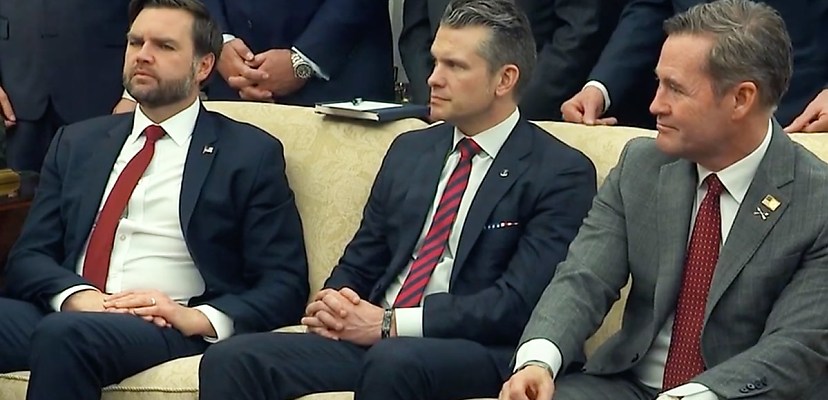Share this article on:
Powered by MOMENTUMMEDIA
Breaking news and updates daily.
The Trump administration has blamed the Yemen Signal leak on a case of smartphone autosuggest.

Last month, National Security Adviser of the United States Mike Waltz was called out for leaking details of US strikes on Yemen after he added a journalist to a Signal group chat with senior national security staff, including Vice President JD Vance, US Secretary of Defence Pete Hegseth and US Secretary of State Marco Rubio.
While Waltz first denied having added editor-in-chief of The Atlantic Jeffery Goldberg to the group chat, he eventually took blame for the incident, while still calling him “scum”.
Now, the Trump administration has said that Goldberg’s invitation to the “Houthi PC small group” Signal chat was a case of iPhone autosuggest.
As reported by The Guardian, a White House internal investigation determined that Waltz’s phone provided him with a “contact suggestion update” under the name of Trump spokesperson Brian Hughes, who had provided Waltz with details of an email Goldberg had sent the White House about another story.
As a result, the investigation has concluded that when Waltz attempted to add Hughes, the contact had Goldberg’s phone number, thus adding the journalist to the chat.
Goldberg has not commented on the matter besides saying, “I’m not going to comment on my relationship with Mike Waltz beyond saying I do know him and have spoken to him.”
Still, the mistake has not removed Waltz from blame. The issue has been highlighted as a major security concern, with lawyers concluding that Waltz may have violated the Espionage Act through the use of Signal for planning a national security-related action.
National security lawyers speaking with Goldberg said US officials should not be creating Signal threats at all and that national security matters should be discussed in a sensitive compartmented information facility, or SCIF, something most high-ranking national security officials have in their own homes. The only alternative would be to use government equipment for communication.
Additionally, Goldberg noted that SCIFs do not allow mobile phones, suggesting the operation was discussed in a public space.
“Had they lost their phones, or had they been stolen, the potential risk to national security would have been severe,” Goldberg said.
Furthermore, Goldberg noted that the messages were set to disappear after either a week or four weeks, which may be a violation of federal records law as communications about official acts are required to be preserved.

Be the first to hear the latest developments in the cyber industry.